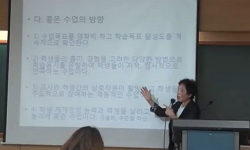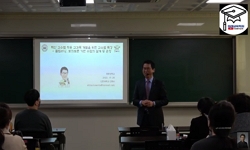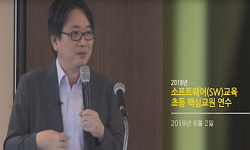This study was conducted to explore the geographic teaching method for elementary social studies, focusing on the water cultural landscape of Jeju Island Gangjeong, and the summarized conclusions are as follows. First, the local landscape is the most ...
http://chineseinput.net/에서 pinyin(병음)방식으로 중국어를 변환할 수 있습니다.
변환된 중국어를 복사하여 사용하시면 됩니다.
- 中文 을 입력하시려면 zhongwen을 입력하시고 space를누르시면됩니다.
- 北京 을 입력하시려면 beijing을 입력하시고 space를 누르시면 됩니다.

ICAP 프레임워크를 활용한 초등사회 지리 수업 방안 탐색 -제주도 강정의 물문화경관을 중심으로- = Exploring the Teaching Methods of Geography in Elementary Social Studies Using ICAP Framework - Focused on the Water Cultural Landscape of Jeju Island Gangjeong -
한글로보기부가정보
다국어 초록 (Multilingual Abstract)
This study was conducted to explore the geographic teaching method for elementary social studies, focusing on the water cultural landscape of Jeju Island Gangjeong, and the summarized conclusions are as follows. First, the local landscape is the most suitable object for learners’ identity formation and experiencing geographical thinking, and the class to explore these local landscapes becomes the basis for acquiring living knowledge. Second, the ICAP framework is a useful theory for how students perform their learning and how to design instructional plans and activities to increase student participation. Through the appropriate combination and design of each mode, higher cognitive participation and learning improvement should be achieved. Third, despite the geographical environment in which Jeju Island is made up of volcanic islands and natural water is valuable, Gangjeong, Jeju, has a unique Jeju Island Gangjeong water cultural landscape with a strong regional identity due to its rich water abundance. This is largely divided into a river landscape and a spring water landscape. Fourth, the plan for exploring the Jeju Island Gangjeong water cultural landscape was designed by dividing it into before, during, and after the exploration using the ICAP framework. Prior to the exploration, it was composed of Passive and Active modes so that learners could acquire overall knowledge and information about the Gangjeong water cultural landscape of Jeju. During the exploration, it was designed in Passive, Active, and Constructive modes so that knowledge of the Gangjeong water cultural landscape of Jeju can lead to productive activities. Finally, after the exploration, it was composed of Constructive and Interactive modes so that more constructive and interactive learning can be achieved.
동일학술지(권/호) 다른 논문
-
걷기여행길 보행환경 개선 및 활성화 방안에 관한 연구 -괴산군 산막이옛길의 안전성과 편리성을 중심으로-
- 한국사진지리학회
- 강금해
- 2024
- KCI등재
-
1930년대 지방 향촌 여성의 경성 유람을 통한 근대 경관 인식 -『경성노정기인력거』의 내용 분석을 중심으로-
- 한국사진지리학회
- 김해경
- 2024
- KCI등재
-
- 한국사진지리학회
- 곽병조
- 2024
- KCI등재
-
인구밀도가 합계출산율에 미치는 효과에 관한 연구 -강원특별자치도를 중심으로-
- 한국사진지리학회
- 박건영
- 2024
- KCI등재




 KCI
KCI KISS
KISS






